More foreign fishermen risk crocodile attacks to illegally collect sea cucumbers from Australian waters
Exclusive new photos show the Australian Border Force locating illegal foreign fishermen hiding in mangroves off the Northern Territory in recent days as Indonesian boats continue to pillage our sea cucumbers.
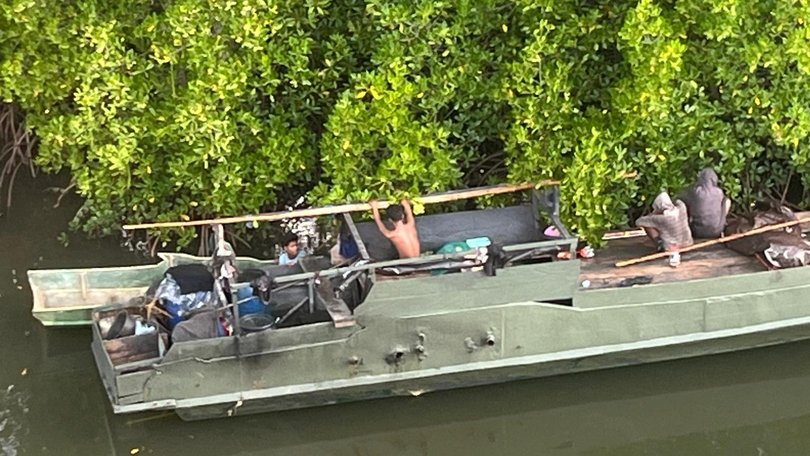
Exclusive new photos show Border Force finding illegal foreign fishermen hiding in mangroves off the Northern Territory coast in recent days as Indonesian boats continue to pillage sea cucumbers from Australian waters.
On Friday, the ABF — through Maritime Border Command — intercepted two Indonesian fishing boats in waters near the remote community of Maningrida.
The fishermen were collecting sea cucumbers, also known as trepang, which are regarded as a delicacy in many Asian nations.
Sign up to The Nightly's newsletters.
Get the first look at the digital newspaper, curated daily stories and breaking headlines delivered to your inbox.
By continuing you agree to our Terms and Privacy Policy.Locals alerted authorities to the vessels, which the fishermen had tried to hide in the mangroves of a creek north of Junction Bay on the Arnhem coastline.
The ABF said it responded immediately, relocating a patrol vessel that had been involved in response activities as part of an enhanced posture.
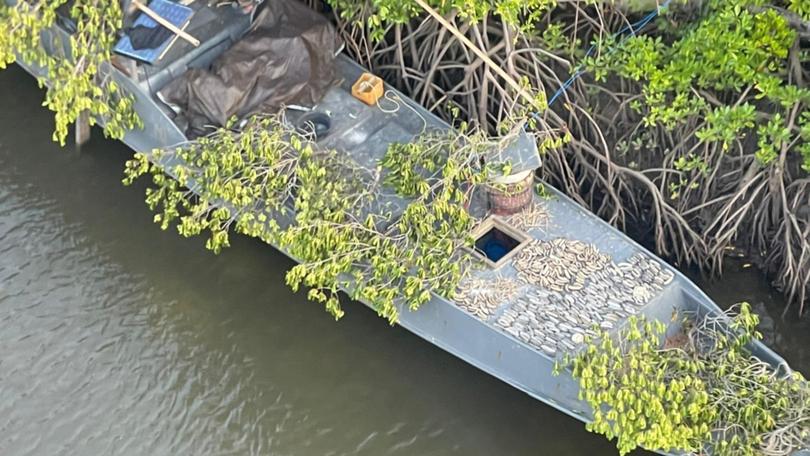
On arrival, MBC personnel — in consultation with the Australian Fisheries Management Authority — seized 190 kilograms of sea cucumber, 240 kilograms of salt (used for preserving catch) and assorted fishing equipment.
One of the fishing vessels was seized and destroyed at sea in accordance with Australian biosecurity law.
The second vessel was escorted out of Australian waters.
Photos, obtained exclusively by The Nightly, show the fishing vessels filled with rows of sea cucumbers.
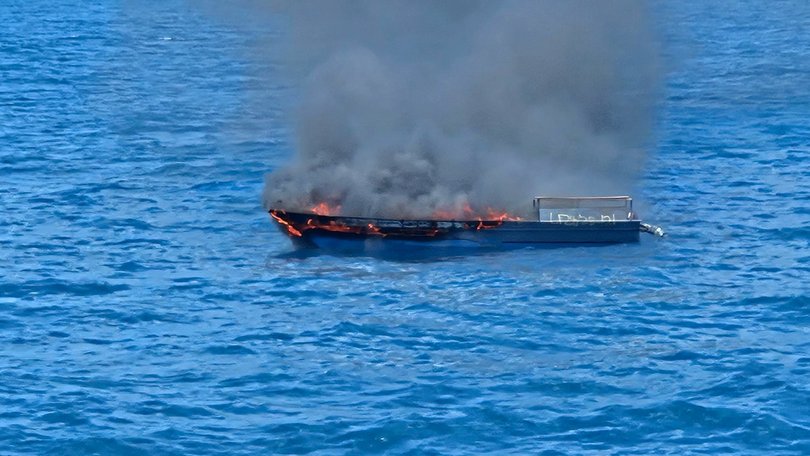
The ABF is responsible for protecting more than 30,000 kilometres of coastline, much of which is in very remote areas.
Rear Admiral Brett Sonter, Commander MBC, said the community has always played an important role in protecting the Australian border.
“ABF, Defence and AFMA officers work tirelessly to protect our vast coastline and ensure those who seek to profit from illegal fishing are detected and detained,” he said.
“People who come to Australian waters to conduct illegal fishing activity will be caught, will lose their catch, equipment and likely their vessel.
“MBC proactively adjusts and monitors its force posture through an intelligence-led, risk-based approach, and we’ve seen the results of that approach in the speed and success of this interception.
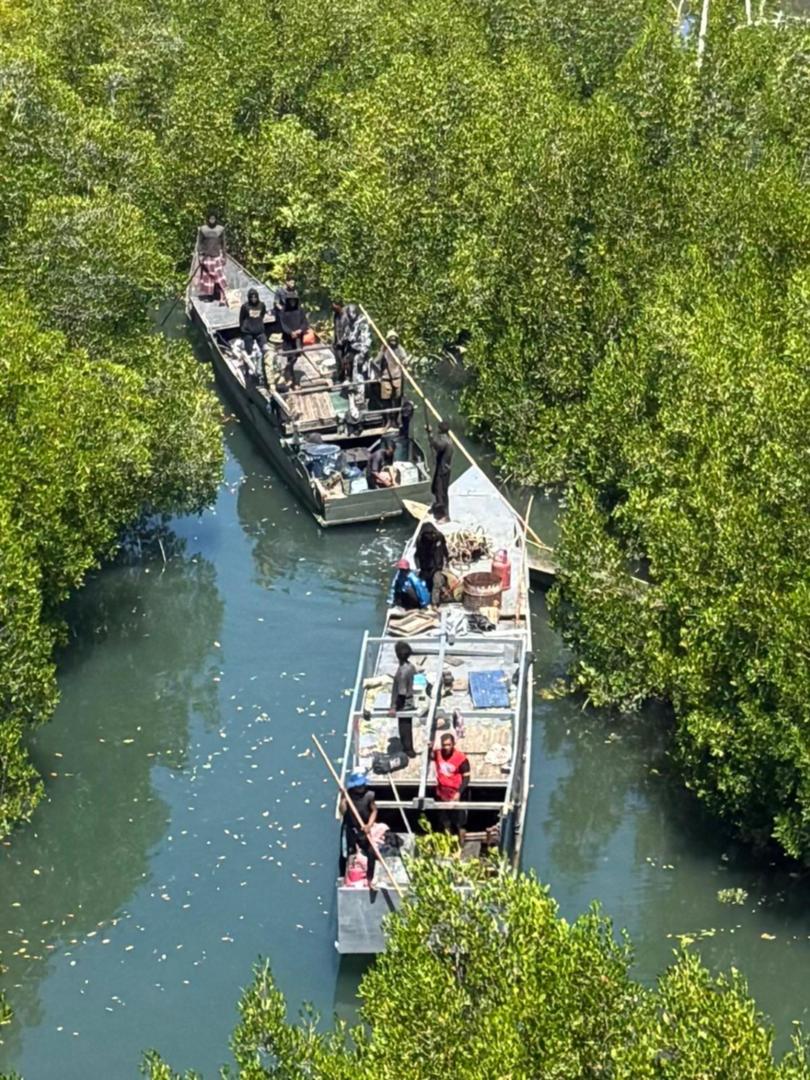
“I would like to thank the hardworking officials and members of the public who reported the vessels to Border Watch.
“This timely reporting enabled a successful interception and contributed to ongoing efforts to protect Australia’s sovereign waters.”
AFMA General Manager of Fisheries Operations, Justin Bathurst, said illegal fishing operators will always see Australia’s healthy fisheries resources as an attractive target.
“AFMA and our partner agencies remain absolutely committed to the task of detecting illegal fishers,” he said.
“Those caught fishing illegally in Australian waters risk prosecution and imprisonment as well as the seizure and destruction of their vessel.”
There seems to have been a recent influx of illegal fishing vessels, and fishermen literally risking life and limb, to illegally collect sea cucumbers from Australian waters, where they are understood to remain abundant.
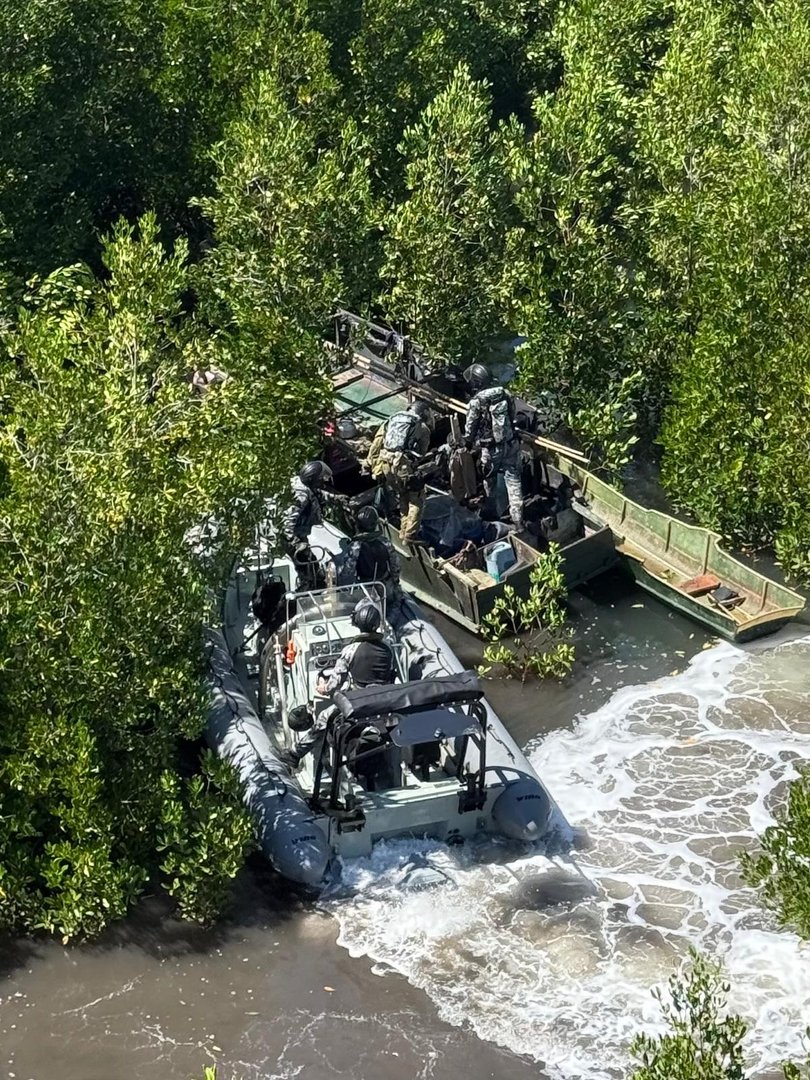
A few weeks ago, the Nightly published incredible photos showing Indonesian fishermen swimming through shallow, croc-infested waters at West Arnhem Land to collect sea cucumbers.
Bawinanga Rangers, who were conducting a coastal survey by helicopter at the time, spotted the daring fishos crawling through the water while their boats were hidden in mangroves at Rolling Bay near Maningrida.
For these fishermen, a large haul of sea cucumbers could be worth thousands of dollars.
A report from the Australian Centre for International Agricultural Research said the dried form, called ‘beche-de-mer’, is a luxury food item in Asian cultures and part of Chinese traditional medicine with the price of sea cucumber steadily rising.
Some species of these bountiful sea treasures are sold in Chinese markets for thousands of dollars per kilogram.
Pilots and rangers in the NT told The Nightly they have seen dozens of illegal fishing boats off the NT coastline in the last couple of months.
The Northern Land Council also recently claimed there had been an increase in foreign fishermen exploiting the area.
MBC and AFMA said they have successfully conducted 139 foreign fishing vessel interceptions and successfully prosecuted 67 foreign fishers in Australian courts this financial year, with a further 16 Indonesian fishers awaiting court hearings.
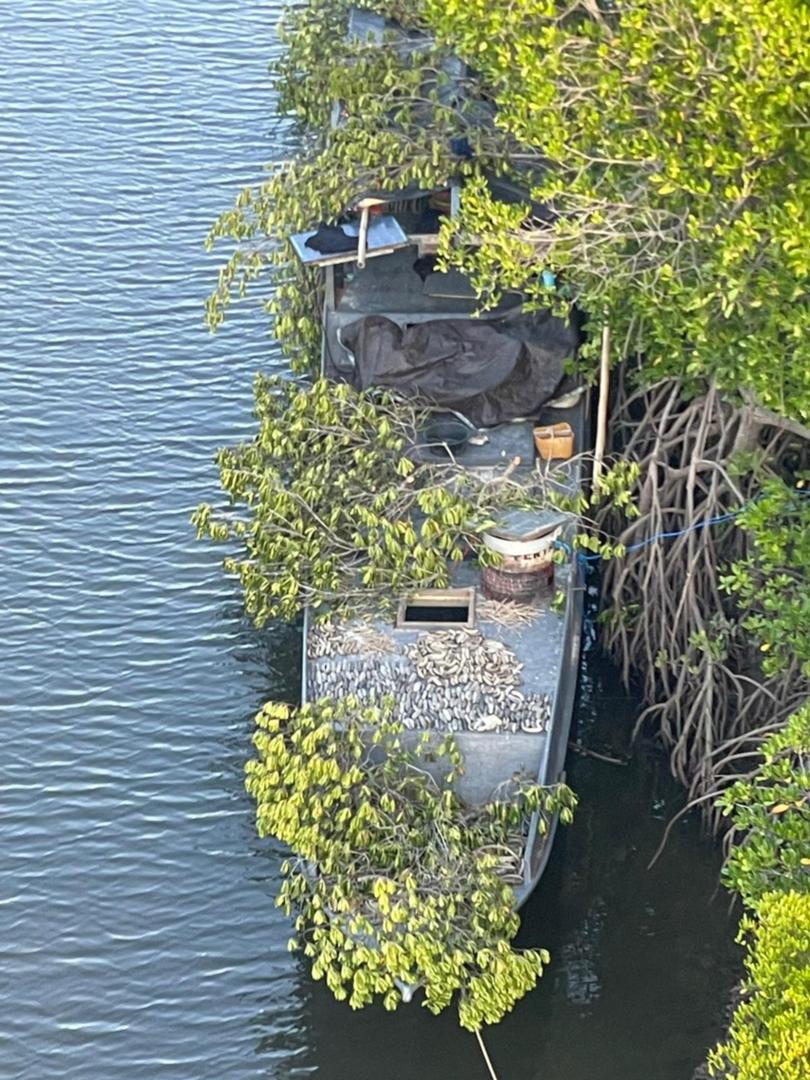
REPORT SUSPICIOUS ACTIVITY
Information about suspicious activity which may impact the security of Australia’s borders can be provided to Border Watch online.
Illegal fishing activity in Australian waters can also be reported by contacting CRIMFISH on 1800 274 634 or intelligence@afma.gov.au

